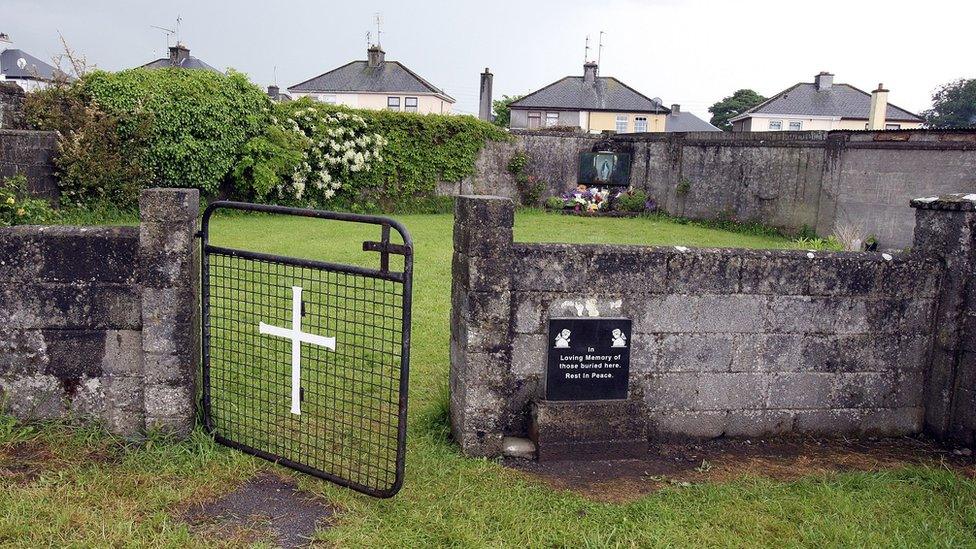Mother and baby homes: Minister expresses 'deep regret' over failures
- Published

The plight of the mothers and their children became an international news story after the discovery of "significant human remains" on the grounds of a former home in Tuam
The Irish Minister for Children Roderic O'Gorman has said he "deeply regrets" his communication failures over a controversial bill that critics say will seal the records of mother and baby homes for 30 years.
Mother and baby homes were established in the 19th and 20th centuries.
The institutions housed women and girls who became pregnant outside marriage.
Most of the babies and children were later adopted or spent time in orphanages.
They became an international news story in 2017 after "significant human remains" were discovered in the grounds of a former home in County Galway.
Database transferred
As a response, the Irish government established an Independent Mother and Baby Homes Commission, which is due to publish the findings of its five-year investigation on 30 October.
In advance of the publication, a bill is working its way through the Oireachtas (Irish parliament) that provides for the database of 60,000 records from the commission to be transferred to the child and family agency Tusla.
Much of the evidence the commission heard was given in private and legally protected.
The remaining records will be sealed for 30 years.
But campaigners on behalf of the mothers and their children have expressed fears they will not be able to access their records if they are sealed.
All opposition parties in the Dáil (lower house of parliament), as well as the vast majority of independents, voted against the bill, but it was passed on Thursday.
Mr O'Gorman said he was "absolutely committed to addressing the issue of the 30-year rule" and the very legitimate concerns about the information contained in the archive.
Attorney general engagement
Speaking on RTÉ radio, he said he understood why survivors of mother-and baby homes would want to get access to the information from the commission so they "can secure their full identity".
He held out the prospect that they might be able to access their records, saying that he would engage with the attorney general to see what avenues exist to address their concerns, including using GDPR.
But he also indicated that he had to be mindful of the rights and concerns of those who, legally protected, spoke to the commission in private hearings.
He also said he would work with elected representatives, victims and academics to see what approach to follow.
- Published15 October 2020
